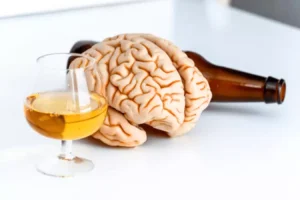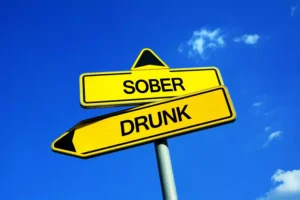With professional help, you can increase your chances of tapering successfully. A substitution taper refers to switching strong liquor for an alternative that contains less alcohol, like beer. Once you’ve changed to a less alcoholic option, you can gradually reduce your drink amount.
Challenges of Cutting Down Your Alcohol Intake

The exact symptoms you experience will depend on factors such as how much alcohol you’re consuming, other medical conditions you have, medications you take, and your body’s response to the taper. If you have high blood pressure, avoid alcohol or drink alcohol only in moderation. For healthy adults, that means up to one drink a day for women and up to two drinks a day for men. Tell your family and friends that you’re aiming to stop drinking alcohol and explain why. This way, you can share your successes with them, and they’ll understand why you’ve started turning down drinks or trips to the pub.
Alcohol Tapering Strategies

If you or a loved one is suffering from an alcohol use disorder, it can feel like being trapped in a tunnel with no way out. Our admissions specialists will help you find the facility and treatment program best suited to the recovery needs of you or your loved one. Our knowledgeable and compassionate team is available 24/7 to help get you or someone you care about into treatment and answer any questions or concerns you might have. However, even the best-designed tapers can put you at risk for alcohol withdrawal syndrome. For this reason, you should never start an alcohol taper before clearing with your doctor. The length of the tapering process can vary based on the needs of the person.
- It includes patient education on withdrawal, monitoring for severe withdrawal symptoms, and creating a low-stimulation environment.
- This could include engaging in new hobbies, exercising, or seeking support from friends, family, or support groups.
- When those around you are in the know, it can help them know not to offer you drinks.
Can Tapering Down Alcohol Use Reduce Withdrawal Symptoms?
Professional guidance is often necessary to navigate the complexities of alcohol tapering. A healthcare provider can tailor the tapering schedule to the individual’s needs, considering factors like dependence and overall health. They can also provide support and resources to manage withdrawal symptoms and address any complications that arise.
The craving for alcohol may be a persistent challenge during and after withdrawal. There will be multiple points throughout the process where you will be tempted to drink. It’s helpful to think of your craving as a wave; Cravings build, peak, crash and dissipate.
- If alcohol withdrawal is so dangerous, is tapering off alcohol necessary for everyone who drinks?
- Through therapy, support groups and medication, you’ll be supported on your path to recovery.
- If you suddenly quit drinking, your brain can start to make more of an excitatory substance called glutamate.
Rather than quitting drinking abruptly (or “cold turkey”), many professionals recommend gradually reducing your drinking (or tapering) over time. This can give your body the chance to adjust, helping you avoid the worst of withdrawal symptoms. For one, it may be more difficult for some to stay the course in their home environment, where exposure to certain people or things could trigger a relapse or return to drug use. In rare cases alcohol detox can cause delirium tremens (DT), a life threatening condition that can lead to stroke, heart attack, and death if left untreated.
- When done under medical supervision, tapering off alcohol has few downsides.
- It also can reduce the risk of relapse by not trying to attempt too much too soon, failing, and then going back to regularly using alcohol to cope with the feelings of failure.
- By becoming aware of our drinking patterns and the effects of each drink, we can begin to make more mindful choices.
- Support systems, such as family, friends, or professional care, provide the necessary encouragement and oversight.
- This should, of course, still be done under the care and supervision of a medical professional at a treatment center specializing in medical detoxification.

Sometimes, they may experience seizures and delirium tremens (DTs). Some find tapering is not a suitable option to stop drinking due to various factors such as social responsibilities or peer pressure. For many people, tapering alone is insufficient to help heal their addiction. Talk to a medical professional if you have any concerns about tapering off alcohol. They can provide recommendations to help you avoid harmful side effects.
How to Gradually Stop Drinking
One of the keys to a successful taper is taking gradual steps that will cause as few side effects as possible. To understand how much alcohol is too much, it may be helpful to know the definitions of excessive how to taper off alcohol drinking. There is something delicious about our first taste of alcohol, although not in a literal sense. The truth is that most of us squint at our first sips until we learn to acquire the taste over time.
From Curiosity to Dependence: The 4 Stages of Alcohol Misuse
